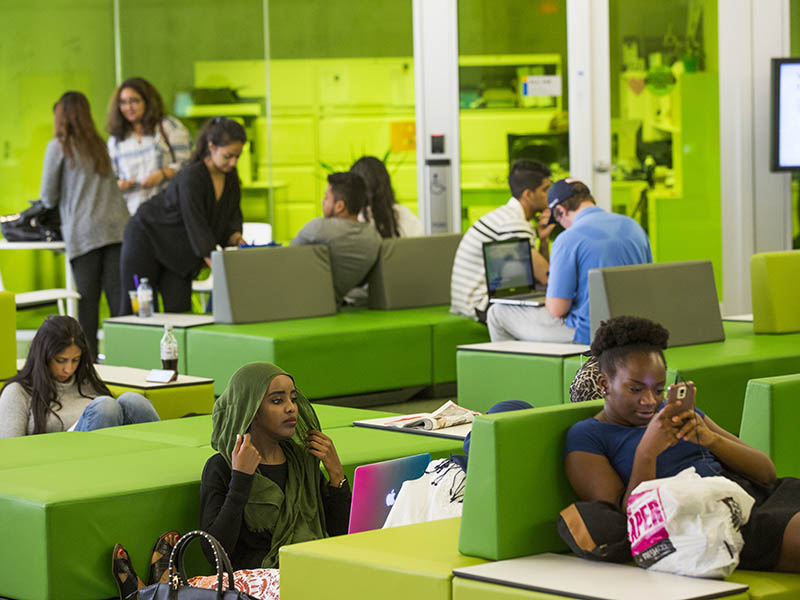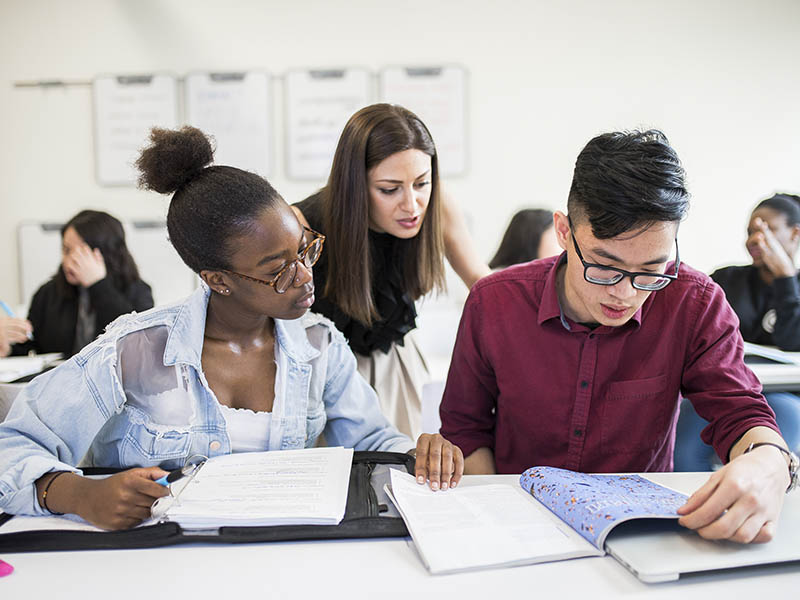How to Lean On Learning Support
One of the main goals of attending university is to learn, believe it or not. Yes, it’s good to have the (equally important) goals of expanding your interests and meeting new people, but your academics matter too! The transition to university lectures, labs and tutorials from a high school classroom can be a bit intimidating. That’s where our university’s Learning Support comes in! Learning Support is one half of Student Life and Learning Support, and their role is to meet the needs of students at any and every stage of their academic journey.
To learn more about Learning Support, I had a virtual chat with Krystal Valentine, who is the Manager of Student Learning and Academic Engagement. When asked about her role she said, “I get to work with incredible professional staff that care very deeply about students — not only their academic journeys, but also who they are as people.”

The fourth floor of the Student Learning Centre, where some of Learning Support’s services can be found.
Learning Support is broken down into four different areas of support: writing and language, math and computer science, study skills and transition and graduate student support. There’s some overlap between the areas, but it is mainly split in those divisions. Through individual and group experiences, these areas support students who want to build or learn new skills during their time studying here. The individual programs include tutoring for math and computer science courses, as well as writing appointments to help students with grammar and self-editing. Their group workshops include opportunities to learn about time management skills, how to write proper citations for academic papers and how to prepare for tests and exams.

One of the programs Learning Support offers to first-year students at our university is Academic Edge, which “focuses on goal setting, academic skill building and finding a community among a group of first-year students.” Past participants have said that it’s a great way for students to connect and support each other while they go through their first year and find community within the university on a smaller scale.
Learning Support also offers Supported Learning Groups for first-year courses that are traditionally more difficult in subjects including science, engineering and more to help students build the skills they need to succeed in the course. There is also academic support available for Ted Rogers School of Management and Faculty of Community Services students through their respective faculties.

A program that Krystal says she gets excited about planning for is the Summer Jumpstart program for new students. She says “it’s such an incredible opportunity for incoming students to get a lay of the land before Orientation week happens and to get excited about university.” The program shows how student life, athletics, health and wellness and learning support are all intertwined. Students participate in a range of activities such as building study skills, but also attend social events like concerts. It helps build familiarity with campus before the official start of first year.
Krystal says that part of Learning Support’s role is to “help students to know where and how they can receive support, and to also identify when they need it.” She says that “we’re here from the beginning” and encourages students to attend academic support sessions (such as math support) from the beginning of the semester in September so the skills can be built by the time midterms and exams come around.

When it comes to advice for first-year students, Krystal encourages students to have some self-compassion! She also suggests being intentional about how you want your post-secondary education to look like, whether it’s in picking courses or taking advantage of a variety of social, work and community opportunities to “put you in the path of really incredible people that will hopefully inspire you.” Finally, she suggests defining success for yourself, and using that as motivation during tough times, especially as your personal definition of success changes.
Our university has an entire community of support services to help you throughout your university experience right from the beginning, with Learning Support just being one pillar. To find out more information about Learning Support, check out the Learning Support website, social media (external link, opens in new window) and keep an eye on your inbox for any emails about some of their amazing first-year programs!